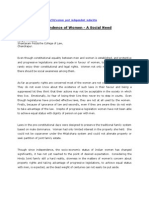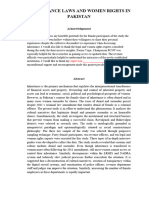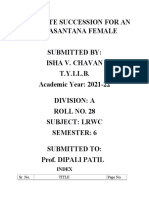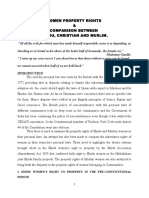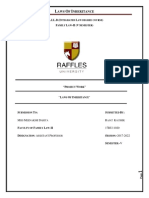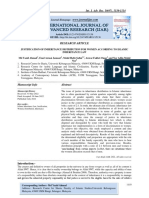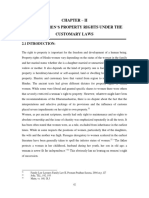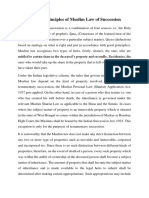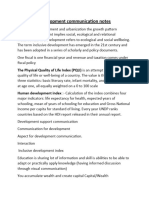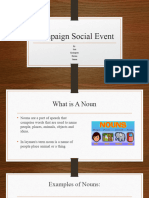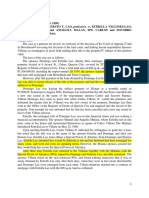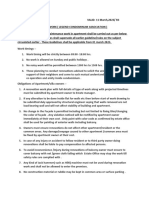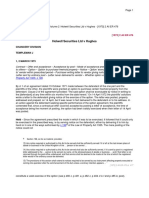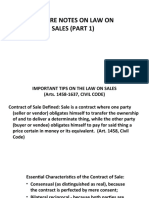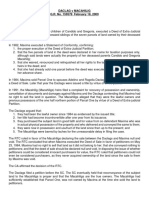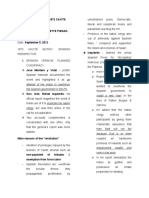A family's property is usually passed down to the eldest son.
The daughter is only entitled to
get an inheritance if she is unmarried, has no children or has fewer children than her brothers.
She also may get an inheritance if she takes up an approved vocation like priestesses.
This means that female descendants are deprived of their rights in property ownership and
this dependence on men perpetuates the social stigma of women being less valuable than
males.
We can see that the concept of female inheritance in property is two-sided. It is generally
accepted by society to be an example of equality, but others believe that it should not be
applied to property because it goes against the traditional patriarchal system.
It's no surprise that the future of women's inheritance rights in property has been hotly
debated for centuries. On one hand, it can make sense for women to hold their own assets
separate from those of their spouses; on the other hand, there are those who feel that this goes
against tradition and places women at risk if their husbands die first.
Inheritance law in most countries is based on a male ancestor. It is only the women who have
the right to inherit property, but they are given less than what the men get. This issue has
gotten more attention in recent years.
There are many reasons why women face this inequality of inheritance rights, such as
preference for males and sexism. However, there is not enough awareness on how it can be
solved legally or socially.
Female inheritance in property, or the law of intestacy, is the system by which a person who
dies without leaving a will (intestate) leaves their property to people on their death.
Female inheritance in property was introduced in England and Wales on 1 January 1926. It
was created for two reasons: to end the injustice that men received sole ownership of all of an
intestate's estate when women had shared equally with him in his lifetime, and to help
balance out the more predictable distribution of wealth between women and men.
The women in some societies have no property rights. They are unable to inherit property
from their fathers or husbands. Women are not allowed to own land, money, livestock, or
other goods that they can pass on to their children.
This is because in many societies, men are seen as the primary breadwinner and caretaker of
the family. Women are seen as secondary caregivers and are not considered the head of
household.
For example, in Arab societies where there is a strong sense of patriarchy, women
traditionally do not have any inheritance rights at all under Islamic law.
Section topic: role of AI writers in future of copywriting
Section keywords: AI writers, copywriters, content writers, use cases of AI writing tool, AI
writing assistants etc.
Introduction
�—
It is important for women to know their rights in order to avoid being exploited.
The law differentiates between "real property" and "personal property". The rights of the
owner are different depending on what type of property it is.
A woman's right over real estate are defined by the Civil Code of Spain, which states that
when a husband and wife die, they can leave their entire fortune to either one of them or split
it equally between them. If only one leaves a will, then this person decides who receives his
or her assets.
Personal property includes money in bank accounts, cars and jewellery. In the case of
personal property, women have equal rights with men in terms of inheritance rights and
bequest provisions.
The problem of female inheritance is not new. Women have always had to fight for their
rights.
One can go back in history and find that women were not given the same inheritance rights as
men, but that has changed over time.
The old traditional beliefs were based on the patriarchal family where the woman was inferior
to her husband and it was his duty to provide for her - from food, shelter, and clothing.
In those days it was also common for a daughter to marry a stranger who lived far from the
woman's family home. The daughter would then leave all her property behind. In modern
times women are not as dependent on men as they once were because they now work outside
of the home and earn income themselves.
This means that a woman now has much more independence in terms of







